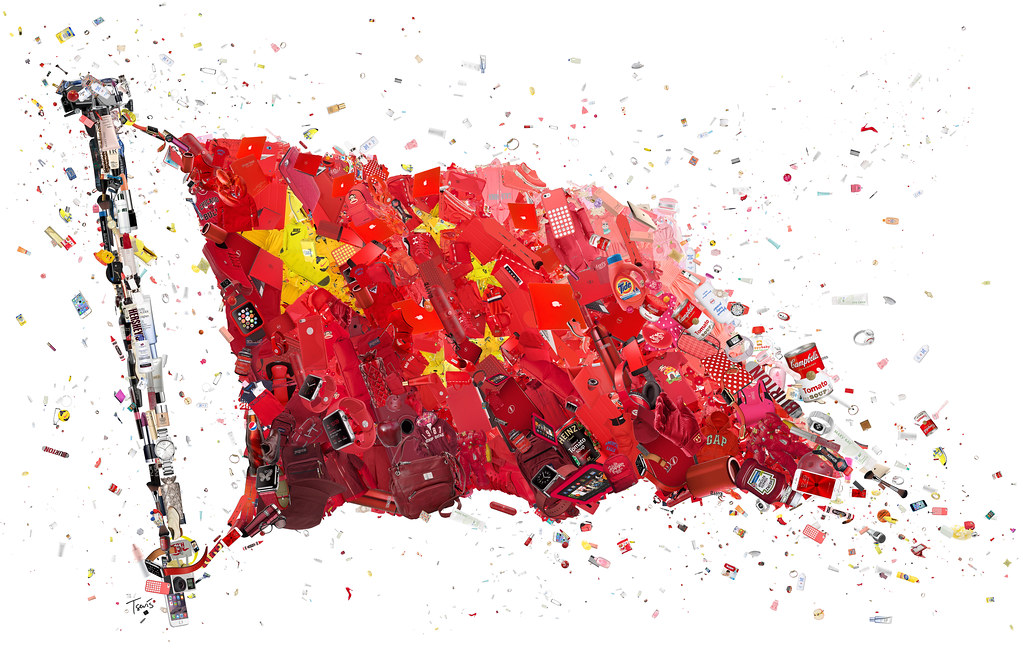Is China screwing up on the Silk Road’s bad debts? Report Ft

China's $1 billion BRI infrastructure financing program has been hit by a bad debt spiral, with more than $78 billion of loans renegotiated or canceled in the past 3 years. The Financial Times article
China's $1 billion Belt and Road Initiative (BRI) infrastructure financing program has been hit by a bad debt spiral, with more than $78 billion in loans gone bad over the past three years. Writes the Financial Times .
The program has made China the world's largest bilateral creditor, but figures indicate it has become a financial boulder for Beijing and its major banks.
About $78.5 billion in loans from Chinese institutions to roads, railways, ports, airports and other infrastructure worldwide were renegotiated or canceled between 2020 and the end of March this year, according to data compiled by the New York-based research organization Rhodium Group.
This is more than four times the $17 billion in renegotiations and cancellations Rhodium recorded in the three years from 2017 to the end of 2019.
There is no official data on the total size of BIS loans over the past decade, but the total is thought to be "around $1 billion," according to Brad Parks, executive director of AidData at William and Mary University in the US. United States.
In addition, Beijing has extended an unprecedented volume of "rescue loans" to avoid sovereign defaults by large borrowers among the approximately 150 countries that have joined the BRI.
The value of these sovereign bailouts totals $104 billion between 2019 and the end of 2021, according to a study by researchers at AidData, the World Bank, Harvard Kennedy School and the Kiel Institute for the World Economy. Over a longer period, between 2000 and the end of 2021, those bailouts to developing countries totaled $240 billion, according to the study.
A growing number of BIS borrower countries are being pushed to the brink of insolvency by slowing global growth, rising interest rates and record debt levels in developing countries. Western creditors of these countries, meanwhile, blamed China for stalling debt restructuring negotiations.
“Frankly, I think this is just the beginning. Chinese banks have an interest in ensuring that their largest overseas borrowers are liquid enough to continue servicing the debts of their infrastructure projects,” Parks said. "Thus, Beijing will likely engage in emergency loans as long as its largest borrowers are in financial trouble."
The pace of BIS renegotiations and cancellations slowed slightly in 2022, compared to the height of the pandemic in 2020 and 2021. However, according to experts, this does not indicate that the underlying quality of China's loan portfolio has improved.
“Far from it,” said Matthew Mingey, a senior analyst at Rhodium. "While some major borrowers of Chinese loans, such as Pakistan, have managed to hang on thanks to IMF and bilateral bailouts, the cracks in the BIS are widening."
Analysts said they didn't expect Beijing to end a program so closely tied to China's reputation in the world and the image of leader Xi Jinping himself. Nearly a decade ago, Xi declared the BRI to be the "project of the century".
"Many countries still welcome Chinese investment in the BRI and I don't think that will change," said Francesca Ghiretti, an analyst at Merics, a Berlin-based think tank.
Carnegie China fellow Xue Gong predicted that China will use the Belt and Road Forum for International Cooperation, which Beijing is expected to hold later this year, to celebrate a decade of BRI achievements and map out future cooperation plans.
But he added that Beijing's general focus on developing local technologies and pressure on public funding at home could lead to a reduction in resources allocated to the initiative. “Large-scale cash handouts to state-owned enterprises for the BRI are out of the question,” Gong said.
At the same time, China is widening its political and diplomatic overtures to the developing world, potentially diluting the importance of the BRI over time.
Since 2021, Xi has launched three strategic initiatives aimed at reshaping the architecture of global governance and diluting the influence of Western-led institutions that have directed world affairs since the end of World War II.
As Beijing seeks to garner international support for two of these initiatives — the Global Development Initiative and the Global Security Initiative — countries that have signed up to become "friends" of China's vision are almost invariably also debtors to creditors. Chinese within the BRI.
Cambodia, Mongolia, Cuba, Uruguay, Nicaragua and Belarus have demonstrated their support for the Global Initiative for Development and the Global Initiative for Security during recent meetings, said Alice Ekman, senior analyst at the Institute for Science Studies Security of the European Union. All of these countries are also prominent members of the BRI.
(Excerpt from the foreign press review by eprcomunicazione )
This is a machine translation from Italian language of a post published on Start Magazine at the URL https://www.startmag.it/economia/la-cina-si-sta-infognando-sui-crediti-inesigibili-per-la-via-della-seta-report-ft/ on Sat, 22 Apr 2023 05:26:41 +0000.
